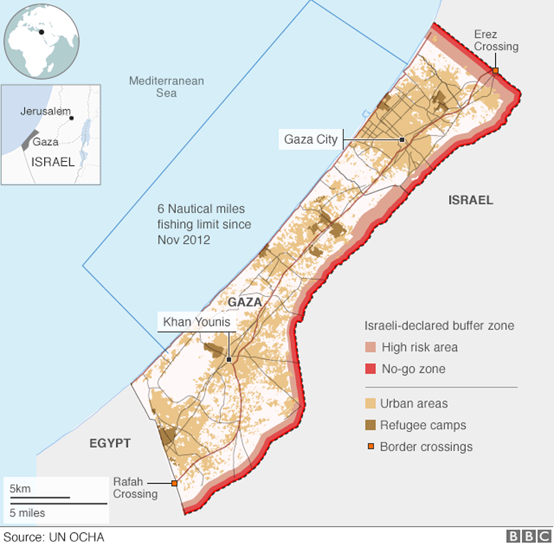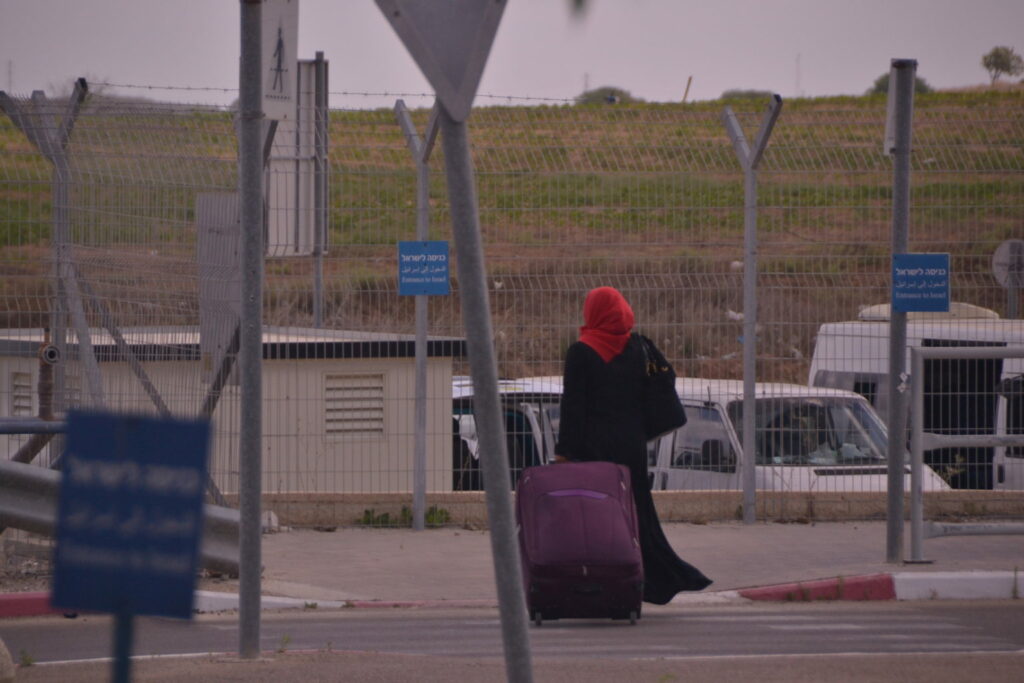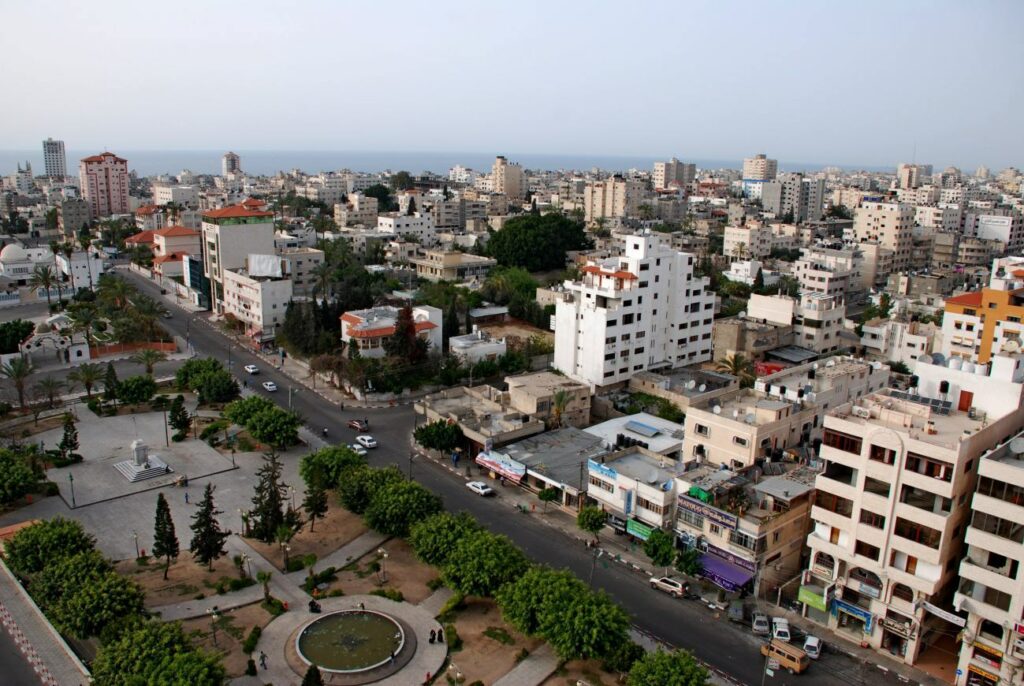Stories
May 26, 2021
Mohammed Azaiza shares his experience of being stuck in Gaza while dreaming of Amsterdam
Mohammed Azaiza is a human rights defender living and working in the Gaza Strip. He is a field coordinator for Gisha – Legal Centre for Freedom of Movement, a non-governmental organization promoting freedom of movement for people and goods to and from the Gaza Strip. In his own words, Mohammed shares his story with us below about wanting to relocate to Shelter City in The Netherlands but being unable to do so because of the severe closure of the Gaza Strip*.
In retrospect, 2020 began fantastically. After more than three years, I received a permit from Israel, enabling me to exit Gaza and enter Israel and the West Bank. I was able to visit the office of Gisha, the organization I work with, in Tel Aviv, and to meet with old friends and colleagues whom I had only “met” from a distance. I also managed, for the second time in 20 years, to celebrate New Year’s Day in Ramallah. It was at that time that I also found out that I had been accepted to Shelter City in the Netherlands, a three-month programme connecting defenders of human rights from all over the world, designed to enable them to improve their work tools and to recover their energy.
Dreaming of Amsterdam while in Gaza
The human rights defenders programme was supposed to begin in April, and I was going to be hosted in Amsterdam, which is one of the 12 Shelter Cities in the Netherlands. When I first heard about this rare opportunity to exit the Strip and travel abroad to undergo professional training and get some rest, I felt like I had won a prize. I looked forward to meeting people from diverse backgrounds, who work in the same field I have worked in for more than a decade. I could hardly wait to learn from them about their lived realities and experiences, and to share my perspective as a resident of Gaza, where life has been shaped by years of closure and ongoing movement restrictions imposed by Israel. I felt that even though we would each be coming from different places, these were people who may have experienced some of the hardships entailed in the field of human rights defence, and could understand me.
I also looked forward to the prospects of touring the Netherlands in the spring. I imagined myself riding a bike through the beautiful streets of Amsterdam, getting to know a new culture, new people, and a new view from my window. I renewed my passport and obtained a visa for Europe. Nobody imagined that a pandemic was approaching; or that the sense of freedom, the ability to reach a planned destination, would soon become no more than a memory.
“Nobody imagined that a pandemic was approaching; or that the sense of freedom, the ability to reach a planned destination, would soon become no more than a memory.”
When the coronavirus’ arrival in the region was recognized in March 2020, Israel tightened the closure on Gaza by further limiting travel via the Erez Crossing in the north-east of the Strip. Egypt closed the Rafah border crossing in the south-west for all but a scattering of days. The pandemic created a new existential fear but people, for all the shock, pain and suffering, worked at accustoming themselves to the new situation. The human rights defenders’ programme was postponed, understandably, by six months. I still hoped to get to Amsterdam, the city I loved from afar, in the autumn.

Living and working under increased closure
In the meantime, I carried on with my work for Gisha – Legal Center for Freedom of Movement, an NGO which promotes rights guaranteed by international and Israeli law, such as the freedom of movement, especially of Gaza residents. As part of my work, I research the impact of decisions made by Israel on even the smallest details of life in Gaza, as well as their effect on various sectors in the local economy, such as fishing and farming. I recently completed a series of in-depth interviews with inspiring women entrepreneurs whose stories reflect the ways in which the closure enforced by Israel since 2007 and tightened even further in the last year limits their opportunities for growth and stops them from realizing their full potential (read the stories of Basma Abu Mustafa and Rozan Al Khazendar).
I have worked at Gisha since 2009. Despite the feelings of desperation and hopelessness that I am exposed to everyday as part of my work, nowing that I am taking part in the struggle to end the occupation and to put an end to the harsh restrictions beleaguering Palestinians in Gaza, helps me find the strength to carry on. I take great pride in every personal story, report or position paper we publish. I am filled with joy whenever Gisha is able to help someone realize his or her right to freedom of movement, which so many other basic rights depend on.
“Knowing that I am taking part in the struggle to end the occupation and to put an end to the harsh restrictions beleaguering Palestinians in Gaza, helps me find the strength to carry on.”
When the first cases of the coronavirus were discovered in Gaza, the focus of our conversations turned to the state of Gaza’s hospitals and civilian infrastructure such as electricity, sanitation, and water, which failed to meet the needs of Gaza’s residents well before the pandemic. Like in other places across the globe, employment opportunities in Gaza were made even scarcer due to necessary social distancing measures. The Israeli “coronavirus closure” at Erez dealt another blow to Gaza’s economy and its people. Residents of the Strip depend on access via the Erez crossing to conduct business with traders in Israel and the West Bank and to collect payments; those who had previously exited via Erez for work in Israel or in the West Bank returned to a workforce with 43% unemployment.

Defending the freedom of movement
In August, I began getting organized for the trip to the Netherlands. However, coordination between the Palestinian Authority and Israel had been halted. In any case, there was no chance of getting an exit permit given the coronavirus lockdown Israel continued to enforce at Erez, and with the Rafah Crossing still mostly closed. At the time, in the context of my work, I came across stories of people who were stuck for months outside Gaza. Not only were Palestinians forced to navigate their way through international bureaucracy and closed borders, but they also faced a refusal by Israel to ensure their passage back into Gaza, without which there was no hope of finally returning home to their families and jobs.
One of the people I was in touch with was Eiad, a PhD student from Gaza who had travelled to Tunisia via Jordan to defend his thesis and was consequently stranded there for more than a year. He had already received his degree and wanted more than anything to reunite with his wife and children, but was unable to even board a flight back to Jordan without confirmation from Israel that he would be allowed into the Strip. I listened to his story and worked in coordination with Gisha’s legal department, which represents Palestinians before the Israeli courts and administrative authorities. Eventually, following a petition submitted on his behalf by Gisha, Israel was ordered by the court to enable Eiad to return to the Strip. I was moved deeply when he called to tell me he had at long last managed to reach his home and to thank me for my efforts. Shortly after he called, I discovered that it was not possible for me to participate in the programme because I was unable to exit the Strip. The fact that we, at Gisha, had managed to compel Israel to meet its basic obligation to allow dozens of people like Eiad to return to their homes, in and outside of the Strip, helped me overcome my personal sense of disappointment to a degree.

Wishing for a change ‘to fall like a star’
According to both international law and Israeli jurisprudence, Israel’s occupation of more than 54 years, and its effective control over our lives in Gaza, come with obligations. Israel not only neglects its responsibility to enable movement to and from Gaza, but it also continues to ignore its obligation to ensure the COVID-19 vaccine is available to all Palestinians living under its control. In the past year, practically the whole world experienced lockdowns and saw the harm they cause to our psychological state; to our livelihoods and the economy as a whole; to our health, family and community life; and to the sense of control over one’s own life. In Gaza, we’ve lived this way for decades. Anyone who hasn’t lost hope yearns for change to fall like a star from the heavens.
More than a year has passed since I was slated to take part in the Shelter City programme. A few days ago, my 11-year old son asked “Dad, are you still sad that you couldn’t go?” He remembers how excited I was when I heard I had been accepted, and how happily and seriously I was preparing for it. He saw how disappointed I had been when I realized the programme would be taking place without me. As time passed, the sadness dissipated and life went on. I continue doing my work, every day, out of love for the place where I was born. Still, from time to time, I imagine that I’m riding a bike through the beautiful, sunny streets of Amsterdam.
“I continue doing my work, every day, out of love for the place where I was born.”
*This article is based on an op-ed piece by Mohammed Azaiza published in Haaretz, and was written before the latest escalation in hostilities in Gaza, between 10-21 May 2021.
